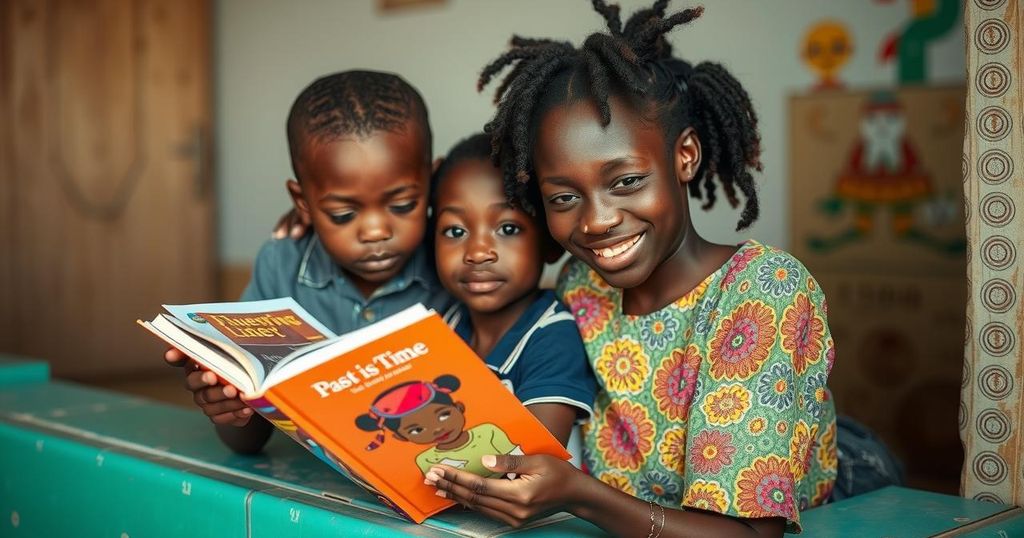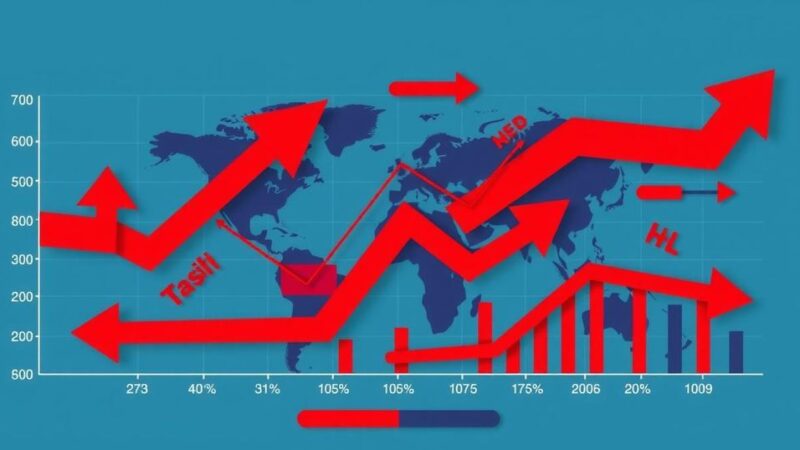In Goma, DR Congo, Martin Lukongo’s print shop plays a pivotal role in promoting local literature amidst socio-economic struggles. The Mlimani publishing house offers affordable books, bridging the gap for young readers who traditionally lack access to literature. This initiative prioritizes local themes and engagement, encouraging community discussions and fostering a cultural revival among the youth.
In the city of Goma, located in the eastern Democratic Republic of Congo (DRC), local printer Martin Lukongo is making strides to promote literature despite prevailing socio-economic challenges. With a focus on affordable book production, Lukongo prints approximately 60 copies per day while overcoming infrastructural deficiencies, such as inconsistent power and limited access to quality paper, sourced from neighboring countries. Mlimani publishing house, a collective of artists and activists, aims to foster a love for reading among youth by offering locally relevant literature at accessible prices between $5 and $10.
Despite the historical view of reading as a luxury in a country where many youths earn limited wages, Mlimani has successfully published a diverse catalogue, including works from renowned Congolese authors and thinkers. These books aim to resonate with the cultural and lived experiences of young Congolese. Mlimani’s initiative has sparked community interest, prompting school visits and public discussions to engage potential readers and extend literature’s reach beyond confined bookshops.
The shift in focus towards local topics and narratives challenges the dominating European-centric historical education often imparted in schools. Young readers, motivated to empower themselves through knowledge, have embraced the opportunity to explore their history and identity through literature. The emergence of additional local publishing houses indicates a growing demand for locally relevant content and has energized both writers and readers in the region.
The Democratic Republic of Congo has faced decades of conflict and economic hardship, leading to a general perception that reading is a luxury rather than a necessity. This situation has created a significant gap in literary production and access, particularly for young people who are often unlikely to afford imported books. The efforts by Mlimani publishing house and other local entities represent a pivotal attempt to redefine the literary landscape, focusing on cultural relevance and affordability to stimulate reading and authorship within the community. Historically, literature in the DRC has been overshadowed by foreign narratives, which has not only affected local authors but has also limited the youth’s understanding of their heritage and history. The recent revitalization of local publishing endeavors aims to bridge this gap, encouraging discussions that would facilitate a deeper engagement with Congolese identity and knowledge.
The initiatives undertaken by local publishers like Mlimani are vital in transforming the literary culture in the Democratic Republic of Congo. By providing affordable access to locally relevant literature, they not only foster a love for reading but also empower young individuals to engage critically with their history and culture. This movement signifies a shift towards a more inclusive and introspective literary environment, encouraging both reading and writing as means of self-exploration and community building.
Original Source: www.malaymail.com






